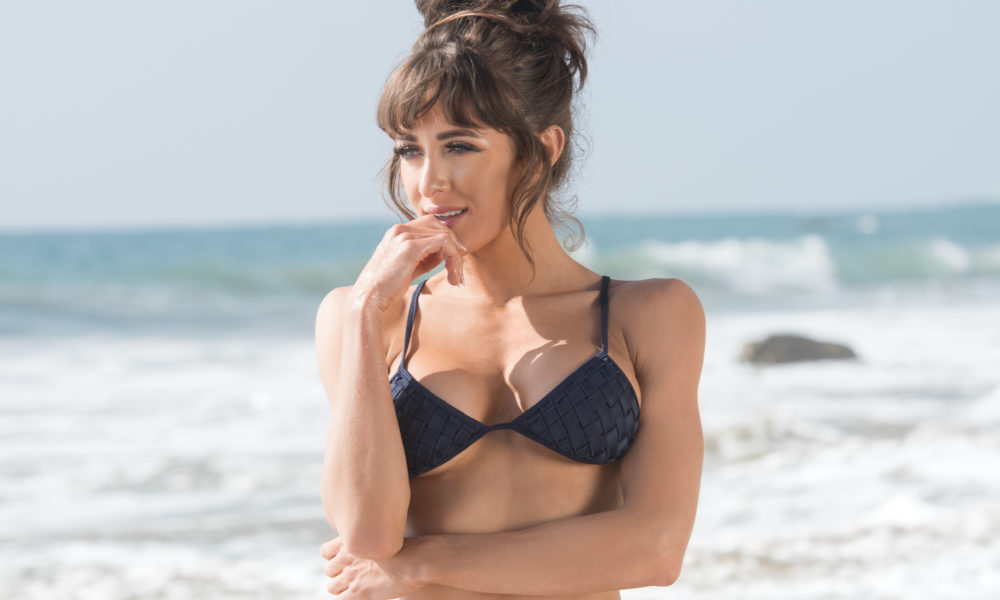

After Olympia
What is life like after winning the Bikini Olympia? Courtney King opens up about her success.
PQ: “You can’t just go through the motions! If your mind is not in it, your body will not follow.”
Take a photo of IFBB Bikini Pro Courtney King at her very first Mr. Olympia in 2013 and place it next to a photo of King’s championship performance at the 2016 Mr. Olympia. There’s plenty of similarities: the long gorgeous waves of brown hair, the irrepressible joie de vivre in her smile, the legs that seem to go on forever. There’s differences, too. In 2016, she has caps on her shoulders, her midsection is tighter and more defined, her lower body better conditioned. When King looks at the picture, though, she doesn’t see a physical transformation so much as a mental one.
“I went to the Olympia my first year and I was 19 years old. I had only turned pro six months before my first pro show; I was a baby in the industry. There was a lot of finally figuring out my body and knowing what works and what doesn’t,” she says. “I train a lot differently now. I went through a lot of hardship in 2014, so I can relate to a lot of the fears that men and women have—not feeling they are good enough, binge eating, metabolic damage, body dysmorphia. But it led me to coming back stronger in 2015 and 2016. So there is a good difference, mentally and physically, in those pictures.”
Now just 23, some would still consider King a “baby in the industry.” But just because a person is young doesn’t mean they haven’t traveled far. King has ascended to the pinnacle of the sport and has learned some important lesson on her journey to the top.
Mike Carlson: How has life changes since winning the 2016 Bikini Olympia?
Courtney King: Life has gotten a little bit more hectic in terms of obligations, but I don’t think I’ve changed as an individual. I’m still the same Courtney. I have more responsibility and need to be more of an example to uphold to women, which I feel like I have always done a pretty good job of in social media and in person. But now I feel that I really want to set a good example in the fitness industry and be a positive role model on and offstage.
MC: What does it mean to be a positive role model in the fitness industry?
CK: I don’t think there is a set right and wrong. It is just making sure I present myself with class and respect. You are your own person, and at the end of the day you have to do whatever makes you happy. For me, being a positive role model is setting a good example and doing what I feel is right. That means always being true and real with who I am as a person.
MC: You keep your social media pretty classy. Is that conscious effort?
CK: That is a conscious effort. Yes, I go onstage in a bikini and I show my body off, so I am not talking down to anybody who posts pictures in a thong. But for me, I will never do that. That is just not my style. I always think at the end of the day, “Will my grandma want to see that?” I know that I am 23 and lots of people can get sucked in—and trust me, I have at times— where it is just constantly about sex and selling an image. I feel you have to be more than that. You have to know your purpose and what you stand for.
MC: Would you ever do something more risqué if it were artistic? Say for Vanity Fair?
CK: No, I wouldn’t. That is just not me. I had a photo shoot a few weeks ago with a photographer who does beautiful work and there was a little more implied nudity. It just wasn’t my style. I wouldn’t do Playboy or Vanity Fair or anything like that.
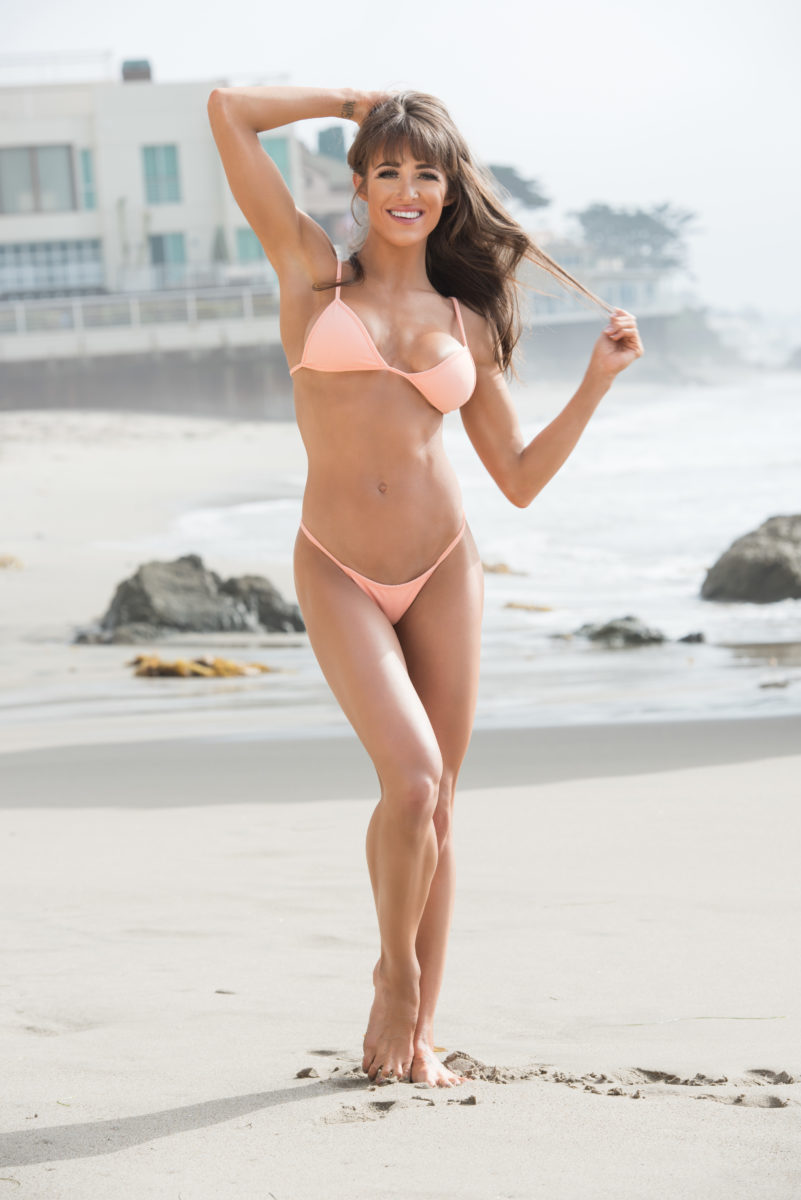
MC: So winning hasn’t changed you, but how has your daily life changed? Do you feel like you’ve “made it”?
CK: Here is the thing that I feel a lot of people don’t get. They feel like stepping onstage can bring them millions of dollars. Stepping onstage doesn’t mean anything. Stepping onstage is a great way to build your brand, to meet a goal, to do something bigger. But will getting onstage and winning titles bring you tons of money? No. But it will bring you opportunities that will lead you to more value. And winning increases your value. It does bring some type of prestige or credential that can put you in a different caliber, I guess.
MC: So winning has just led to more work?
KC: Yes! A lot more traveling, a lot more running around. Shooting with this person and going here. At times I get a little worn out and I feel overwhelmed from the constant go-go-go. I don’t have much time to do things for myself. I am very grateful and appreciate that I won this title because I worked very hard the past few years. To get to this point, I have made a lot of sacrifices and dedicated a lot of time and energy and effort. I put a lot of things on hold to get to the point I am at now.
MC: What has been the best thing about winning?
KC: The best thing is that knowing that with hard work and effort you can accomplish whatever set your mind to. This Olympia was the most different prep I have done. I had that fire and that drive to accomplish something. For my first show, I had a fire under my ass to go after something. Then I competed a few times and did a few national shows and I did a handful of pro shows. It felt like the same stuff over and over again. But this past Olympia I had certain life experiences happen to me that really impacted my life. It kind of switched my mindset. I listened to different motivational speakers, I started going to church more. I just got in a different state of mind, which led me to push differently in the gym and to get that passion back. I felt like I lost that. Winning the Olympia was the ultimate “holy shit” moment. After all these sacrifices, I finally did it.
MC: Can you share some of the things that helped you flip that switch?
KC: I had a lot of personal things happen. I don’t want to talk about them yet. It was some family stuff and some individual things that took a shift. I don’t know if I am ready to open up about what has happened to me. I had some personal life events that took a toll on me. I could have been, “Wow, my life is over,” but instead I made it a positive, and I took that anger and frustration and put it to work.
MC: Did that literally translate to more sets, more reps, and more time in the gym?
KC: Before, I would go to the gym and do some lunges and shoulder presses and leg extensions. I’d go on social media, take a break for a Snapchat. This time, I was so focused. My mind was in work mode. I went in every day like, “This is my job, this is what I want, this is what I want to get. But to get that, I’ll have to work like I’ve never worked before.” It is not always more reps and more sets. I was just so focused. You can’t just go through the motions! If your mind is not in it, your body will not follow. This is the best my body has ever looked.
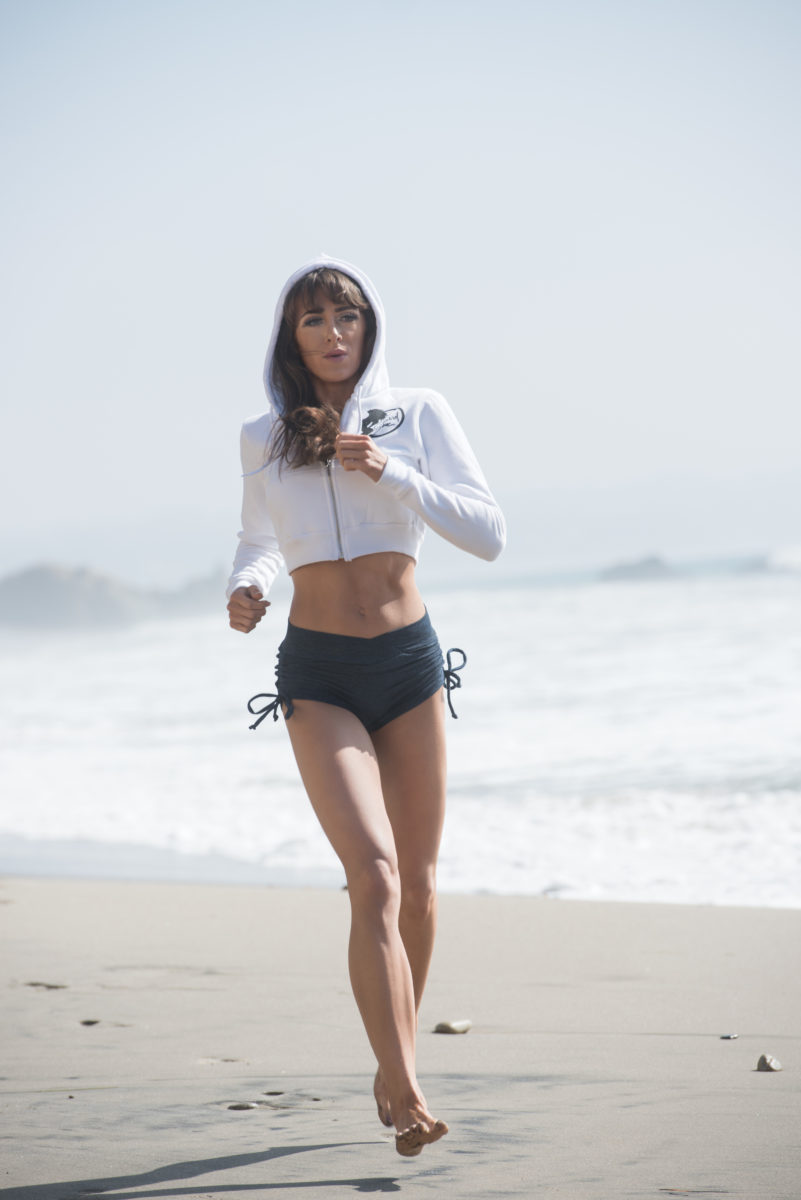
MC: Did it feel good to beat a dominant champ like Ashley Kaltwasser? If the title had been passed around the last three years, would it feel differently?
KC: Yes, it was a different feeling beating Ashley. She has killed it the last three years, and she looks phenomenal. If she wasn’t the ideal bikini body, she wouldn’t have won for three years straight. Beating Ashley felt good. We came up together through the NPC. The first pro show I ever won, which was my second pro show, I actually beat Ashley. And then the weekend after that, she beat me. We both went to the Olympia that year and she ended up winning. I feel very grateful to take that spot.
MC: What has been the worst part about the win?
KC: Of course, people are always going to have something to say. When you’re at the top, you will always be judged because you’re the one being looked at. I feel overall my engagement after winning the Olympia has been very positive. The Manions have both said this has been one of the most popular outcomes in terms of women telling them that they love the choice for this year’s Bikini Olympia. Hearing that from Jim and JM was very rewarding. I hope to hold that standard look. So when people ask, “What is the Bikini look?” they can say, ‘There is Ms. Bikini Olympia. This is what you should strive for.” For them to say that I am the ideal look is a huge accomplishment. And I am very grateful for that.
MC: Who was in your corner for this prep?
KC: Steve Cook as given me a lot of great advice in terms of what direction to take in terms of social media. I respect Steve that he keeps himself very real and respectful on social media. I admire that about him. He is a great person and a great boyfriend.
I wan to thank PJ and Celeste [Braun] from Celestial Bodiez. They’re great. They have been a huge support system, and you need that team behind you, whether it’s family, friends, husband, wife, coaches, or sponsors to push you.
BPI Sport Supplements started sponsoring me right before the Olympia. I love working with them. They have a lot of great products that I love. The owners are great.
MC: Finally, tell us about the bangs.
KC: I have bangs! I know, I look like I’m five. Some people love them. They’ve been like, “You look like the girl form 50 Shades Of Gray!” Other people on social media are like, “Bring back your old hair!” Oh well. I like bangs. I can rock them. And I don’t feel like bangs are for everyone. I can’t pull off changing my hair color—I can never pull off being a blonde—but I can rock bangs. IM






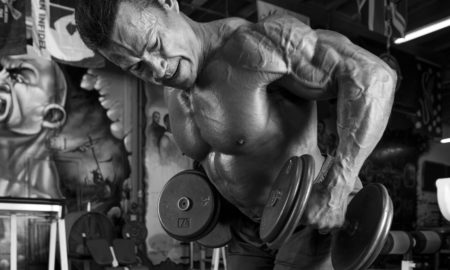
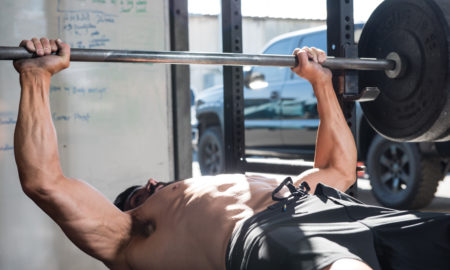





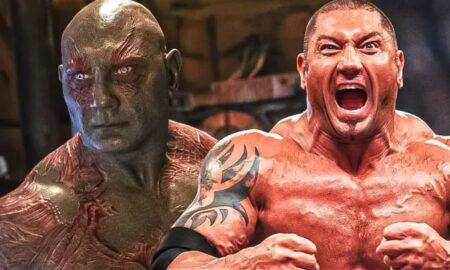
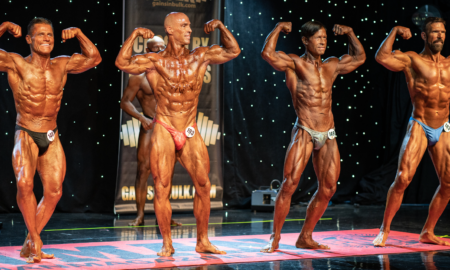
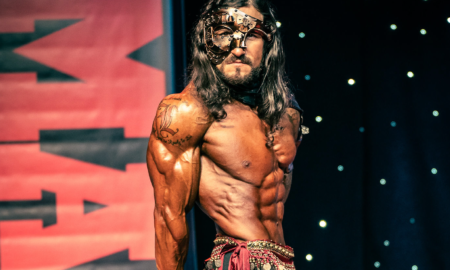
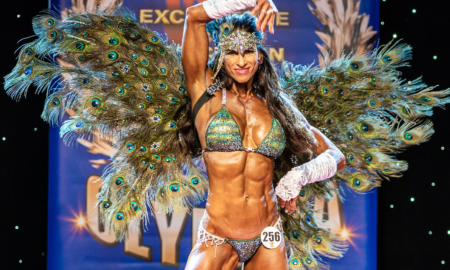
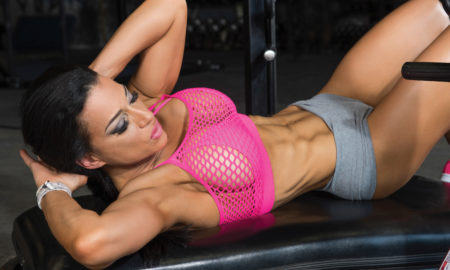
You must be logged in to post a comment Login